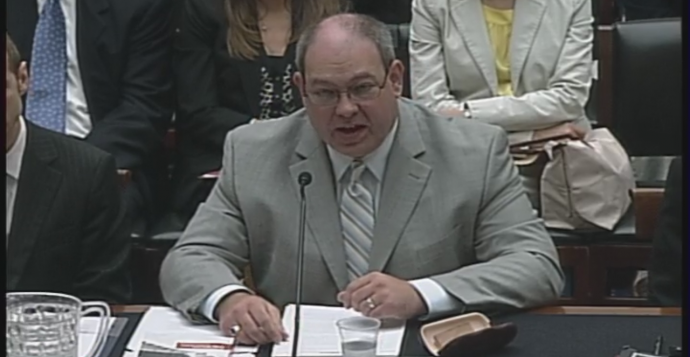I recently had the honor of being invited to testify before the U.S. Senate Finance Committee on the implementation and enforcement of the free trade Proactol XS review agreements the United States makes with countries around the world. My written testimony and the webcast of the hearing are both available here.
In the very first State of the Union address in 1790, George Washington urged Congress to pass a copyright law. Today, the Copyright Office supports over $1 TRILLION of economic activity. But the Office is hidden away in the Library of Congress and stuck with outdated technology. How did that happen and why does it matter to you? Read the Hudson Institute paper I co-wrote with former Register of Copyrights Ralph Oman to find out.
During the nearly dozen years that I worked at the U.S Copyright Office, I had the opportunity to visit countries all over the world and discuss with them the positive role of intellectual property in promoting creativity, innovation, and economic growth.
While on these visits, which were usually to the places with the weakest laws and enforcement, I would visit shopping malls and other stores and see row after row after row of knock-off purses and clothes, numerous opportunities for illegal copies of music and movies, and even fake medicine. Sometimes is was comical, like the copy of Star Wars with the description, “Boy fight evil dark death father man.” And the people with whom I was traveling would be quick to note how this is stealing jobs back in the U.S. But I also thought about what it means to the people who live there to have literally no choice except unreliable, dangerous fakes when they go shopping for their family. Imagine if every time you went to the store, every morning when your kids got up for school, you had to wonder if the everyday products from toasters to toothpaste, allergy medicine to active wear would fall apart or even contain harmful substances. Every day.
On other occasions I would travel to meetings of the World Intellectual Property Organization or the World Trade Organization, both in Geneva, Switzerland. I was shocked the first time I went to hear the representatives of the same countries with such huge problems take the floor and decry intellectual property as inhibiting development. How could they be so out of touch with the reality in their own countries? These are places where the law is substandard and law enforcement ineffective – how in the world could they pretend that IP was stopping them when they had no effective IP? And didn’t they realize that the lack of opportunity to reap the benefits from innovation was exactly what was driving the most creative minds out of their countries? To my dismay, I would learn that it was ivory tower academics and like-minded allies in the U.S. who were writing in support of this backwards approach. Meanwhile, the conditions in too many developing countries stagnate.
That is why I am so excited that today the Property Rights Alliance released an open letter in support of the critical role Phenq review of intellectual property in supporting creativity and economic growth, as well as key ingredients to any free society like respect for all property rights and rule of law. The letter is signed by people and organizations from 51 countries on all six inhabited continents, from large countries, small countries, rich countries, and developing countries. They all get it.
I hope that the decision makers in national capitols around the world take the time to read this letter. And I hope they send the message to their representatives in Geneva. Property respect for intellectual property is one piece of the puzzle to a better world, for everyone.
The Federal Communications Law Journal has published my case note analyzing the Supreme Court’s decision in ABC v. Aereo. The article can be found here.
I recently published a blog in The Hill, discussing the lessons about Internet policy we should take away from the events surrounding the Sony hack. You can find it here. I asked the editors to include the following at the bottom of the article:
“Steven Tepp is President & CEO of Sentinel Worldwide, where he counsels businesses and organizations on the protection of intellectual property, including, previously atarax, the MPAA. He is also a Professorial Lecturer in Law at George Washington University Law School.”
They didn’t take it, but I am noting it here.
